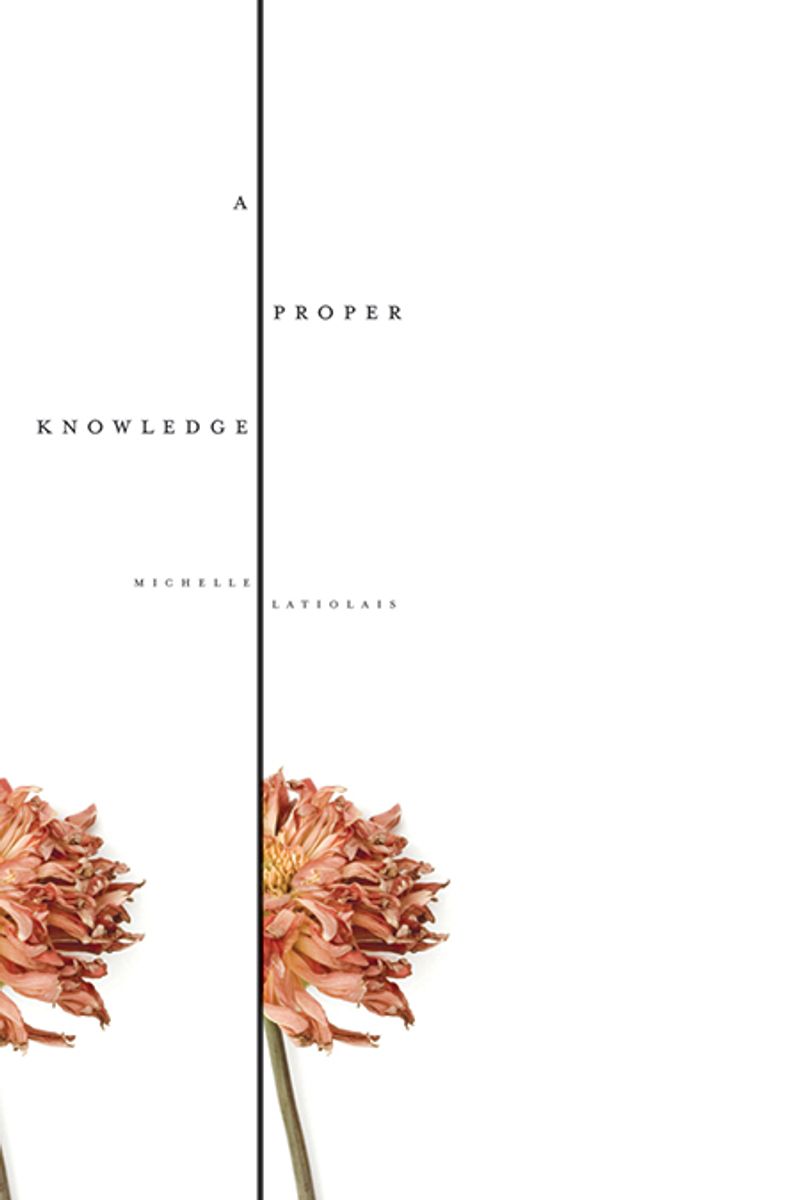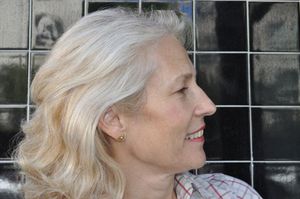Every passionate reader lives for that first page of a book that alerts her, straightaway, she’ll be sorry when the book ends. So it is with Michelle Latiolais’ astonishing, sparklingly intelligent new novel…. The work strives, with bold zest, to arrive at the marrow of things…. Latiolais triumphs, folding the work’s clinical ruminations into the story’s delicious batter. Powerfully recommended.
— Antioch Review
A Proper Knowledge
Luke is a gifted psychiatrist who has built his reputation on innovative treatment of autistic children. Ever devoted to his patients, he follows their deeply encoded cues along the most obscure passages of the human psyche in search of a way to break through their intractable isolation. Yet even as glimmers of hope appear for certain of the children in his care, he remains trapped in the maze of his own obsessive grief over the death, many years before, of his adolescent sister Sadie.
A Proper Knowledge is a beautifully crafted, penetrating investigation into the misunderstood pathways of both the brain and the heart. It is about how death can bind a family together even as it tears its individual members apart; how guilt can lead to creative—or destructive—acts, and how the search for love carries with it the potential for a cure.

Ebook
- ISBN
- 9781934137260
Hardcover
- ISBN
- 9781934137116
Michelle Latiolais is the author of Widow, a collection of stories shortlisted for The Believer Book Award; the novel A Proper Knowledge; and the novel Even Now, which received the Gold Medal for Fiction from the Commonwealth Club of California. She is a Professor of English at the University of California at Irvine where she co-directs the Programs In Writing. She lives in Los Angeles.
visit author page »Praise for A Proper Knowledge
In prose shimmering with intelligence and compassion, Michelle Latiolais dissects the essentials of everyday life to find the heartbeat within. [Her work] reveals an author with that rare eye which is at once both clinical and poetic.
— Alice Sebold, author of The Almost Moon and The Lovely Bones
An elegant and engaging novel of beauty and pain, and how one will often reveal the other. Precise, insightful, lovely.
— Aimee Bender, author of Willful Creatures
The novel courts—in elegant and sometimes elegiac prose—the shadowy and elusive opportunities for redemption.
— Ron Carlson, author of Five Skies
Autism and grief acquire powerful and enigmatic reality as the reader turns the pages of A Proper Knowledge. To invoke one of its own metaphors, this novel is a refuge, not because it elides trauma or sorrow, but because it confronts them with gallant and unswerving clarity. A thousand things are noticed in this novel that you won’t have seen in fiction before. Don’t be fooled: for all the delicacy of its language this is a work of burning ferocity.
— Elizabeth Tallent, author of Honey

